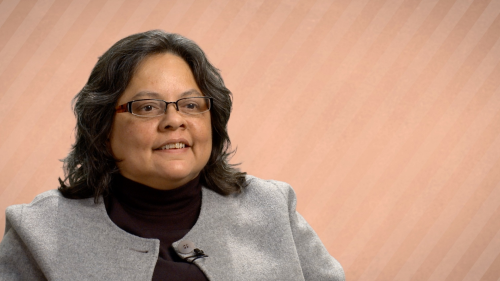Oct 07, 2014
Competency-based education: Expert commentary on higher ed for adults, adult learning and learning agility from DePaul University
Competency-based education: Expert commentary on higher ed for adults, adult learning and learning agility from DePaul University
CHICAGO — DePaul University faculty experts are available to provide commentary and insight on competency-based education. Unlike traditional higher education, competency-based education allows adult students to demonstrate proficiency in subjects or areas of competence, often at their own pace, instead of measuring their knowledge through the accumulation of a set number credit hours toward a degree. In essence, it’s about what students know and can do not how long it takes to acquire the required credit hours.
DePaul University experts from the School for New Learning can discuss a range of related topics, including higher education for adults, adult learning, learning agility, curriculum development and program development.
Scholars available for press interviews include:
Catherine Marienau, professor and coordinator of the Master of Arts in Educating Adults program, School for New Learning. Marienau is a leading scholar on adult learning and can discuss competency-based assessment of student learning and curriculum development. “Many of the reasons why competence-based education is being advocated now are some of the same reasons why it was started in the 1970s — providing better access for adults in particular, adult learners, concern about the status of the economy, concern about developing an educated citizenry, which we need right now,” said Marienau. She can be reached at cmariena@depaul.edu or 312-362-6981.
Michelle Navarre Cleary, associate professor and associate dean, School for New Learning. Cleary can discuss the areas of curriculum, instruction and assessment and adult learning. Cleary’s focus is on teaching writing to adult and nontraditional students. Her current research looks at how students develop as writers when they return to school and how the teaching of writing to adult students can be improved. She can be reached at mnavarr9@depaul.edu or 312-362-7301.
Pamela Meyer, director of the Center to Advance Education for Adults, School for New Learning. Meyer can discuss learning agility, transformative learning and organizational agility, improvisation, innovation and change. She works with organizations to develop dynamic workspaces for creative collaboration and learning. “Competence-based education is education and learning that focuses on what people can actually do and demonstrate as a result of their learning,” said Meyer. She can be reached at pmeyer@depaul.edu or 312-362-8021.
Doug Murphy, senior assistant dean, School for New Learning. Murphy can discuss technology, online and print content, administrative processes, course scheduling, new initiatives and historical perspective of competency-based education at the School for New Learning. He can be reached at dmurphy@depaul.edu or 312-362-5756.
Barbara Radner, associate professor and director of the Center for Urban Education, School for New Learning; and scholar in residence at the Chicago History Museum. Radner can discuss curriculum, instruction and assessment. Her work in the area of urban education has enabled Chicago Public Schools to increase achievement through professional development of teachers developing student learning competencies. She can be reached at bradner@depaul.edu or 312-362-5155.
Russ Rogers, professor and director of graduate programs, School for New Learning. Rogers can discuss change management, process consultation, curriculum, assessment and organizational systems design. “Now we have the advent of behavioral interviewing where in the interview, the question is, ‘What can you do?’ Don’t tell me what courses you took, don’t tell me what grade you got, tell me what you can do,” said Rogers. He can be reached at rrogers@depaul.edu or 312-362-8512.
Marisa Alicea, professor and dean, School for New Learning. Alicea can discuss various aspects of competency-based education including curriculum and instruction. “One of the reasons why there is a growing interest in competency-based education is that it is seen as a way for students to be able to accelerate their learning if they have prior experience or prior knowledge that they can bring in to their degree program,” said Alicea. “The other thing about competence-based education is that it not only honors and recognizes that students come in with a wealth of experience into the classroom, but affords them the opportunity to mine those experiences for meaning and to say, ‘OK, what have I learned from these things and how can I integrate that with what I’m learning in the classroom? How can I take it back to my community, back to my workplace?’” Alicea can be reached at malicea@depaul.edu or 312-362-8772.
Watch and listen to experts from the School for New Learning at DePaul University discuss competency-based education on the Expert Bites video segment: http://depaulne.ws/competencyexperts.
###

Marisa Alicea, dean of the School for New Learning at DePaul University, is among the faculty experts available to provide insight and commentary on competency-based education.
